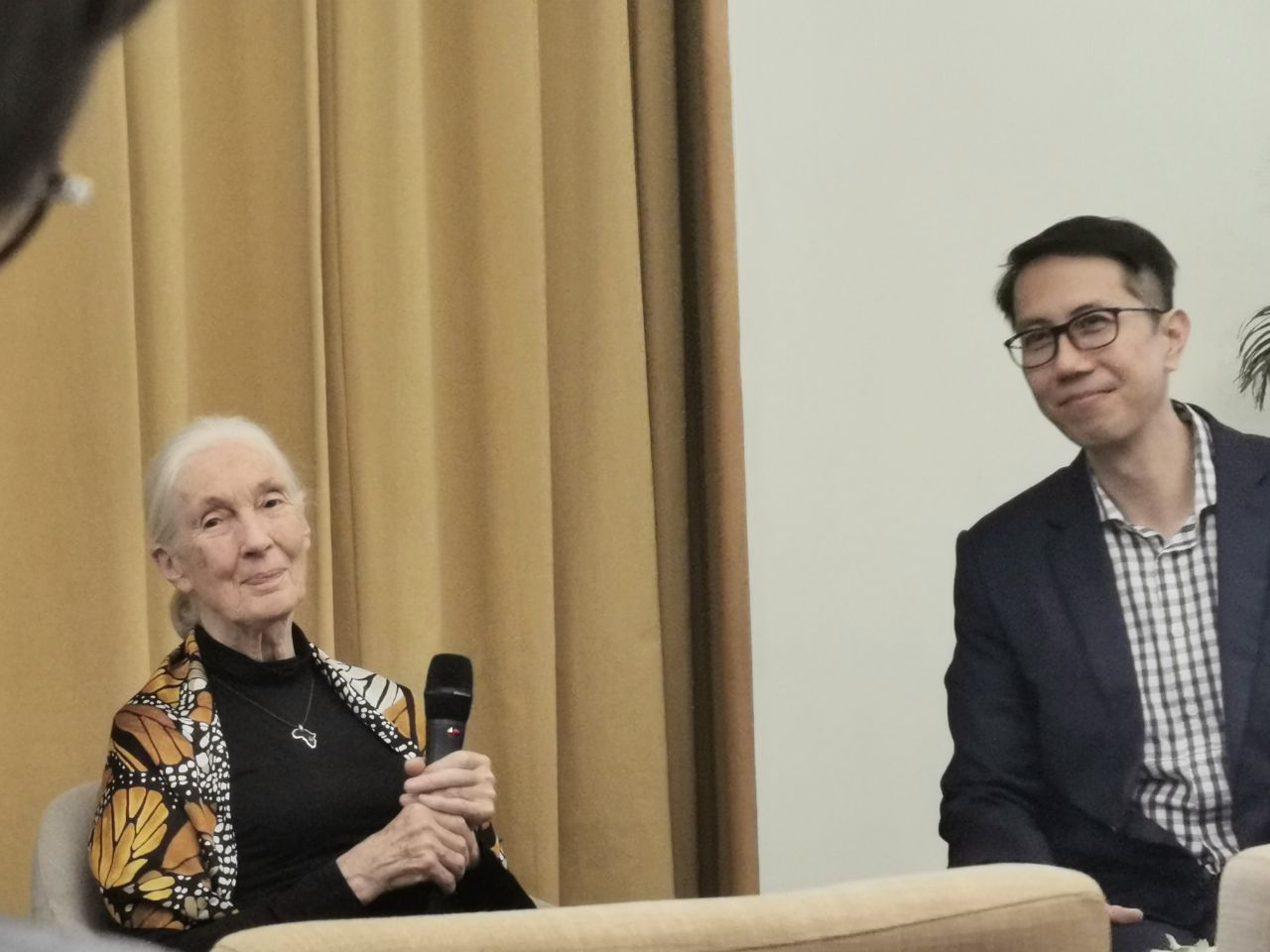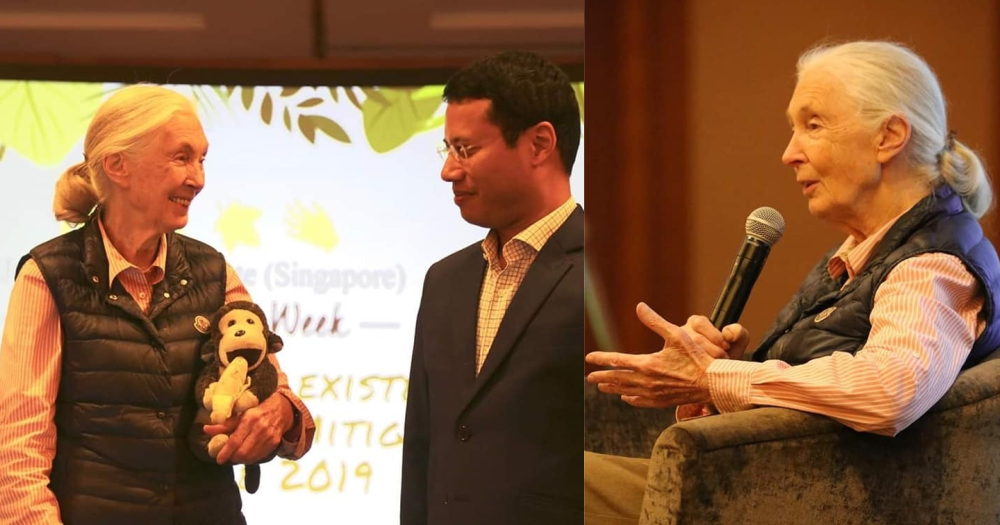Renowned primatologist and conservationist Jane Goodall is in Singapore for the Jane Goodall Institute (Singapore)'s ConservAction Week from Nov. 26 - 28, 2019.
The 85-year-old is known for her long-term study on chimpanzees, the longest-running wildlife research project in the world, which began in 1960 by simply observing and imitating them.
After more than 60 years of work with the primates, Goodall developed the skill of greeting a chimpanzee "in their language".
Listen to how she imitates what is called "pant-hoot" — a low and breathy call by chimpanzees — here:
Very cool.
Goodall also gave an illuminating keynote plenary at an inaugural conference held in conjunction with ConservAction Week, where experts and researchers in the region gathered to discuss how humans and wildlife can coexist in harmony.
Not feeding wildlife is "desperately important"
The conference was also attended by Minister for Social and Family Development and Second Minister of National Development Desmond Lee, who launched a "No Feeding" campaign aimed at educating Singaporeans to reduce and eventually stop being food sources for wild macaques within the next three years, through increased outreach and education.
This No Feeding campaign, Goodall said, is "desperately important" to resolve the human-wildlife conflict that has become more prevalent across the world especially as cities encroach into natural spaces where wild animals live.
While the act of feeding, deemed as a charitable one, makes us urbanites feel good about ourselves and connects us with the natural world, it actually contributes to the conflict humans have with wildlife once they see us as a source of food.
Humans are "most terribly wasteful"
One of the main problems that has led to the human-conflict issue in cities, said Goodall, is food waste.
"We are the most terribly wasteful creatures and food waste is one of the biggest problems. We buy food, we throw it out but there are people starving but we just waste food," she said.
She added that some of us simply buy too much and while it might not be apparent, food can be "too cheap" considering the cost of growing the crops and the transportation involved.
Wasteful habits and less-than-ideal waste management have also led to the breeding of pests, a problem that Singaporeans are not unfamiliar with.
An example Goodall cited is how poor food waste management led to serious rats infestation in New York.
Rats multiply quickly in the presence of food waste left in the open, she added, noting however that if we can manage our food waste successfully, there will be fewer instances of human-wildlife conflict as well.
"It’s completely fascinating to see this interrelationship of the way we behave and some of the problems we caused for the animals and therefore it comes back and harms us as well."
People need to stop chasing economic growth blindly
Goodall has been travelling around the world since 1986 for research and conservation work.
Even at the age of 85, Goodall is still travelling 300 days per year year to raise awareness on environmental issues and inspire people to care about it.
Meeting different communities has also given her the opportunity to get to know various forms of human-wildlife conflict as well as the urgency of the situation, she said.
In her speech, Goodall cautioned that the global human population will hit 9.7 billion by 2050 as more animals are disappearing — with the last pair of Sumatran rhinos in Malaysia dying and rendering the species extinct just recently. Over in Africa, iconic animals like lions and giraffes and even plants are in danger of extinction.
She said humans, who possess unrivalled intelligence compared to other animals, have to recognise our disconnection with nature and find sustainable solutions.
Singapore: a place where people think to send wildlife to the zoo
Later on Tuesday, Goodall was taken aback by a reporter who told her that Singapore is a place where people would think of sending a wild snake to the zoo when encountering one.
 Photo by Zheng Zhangxin
Photo by Zheng Zhangxin
Which drives back to this point Goodall made in her keynote speech:
"We just got this one beautiful planet, how is possible that the most intellectual species is destroying its only home and destroying it so fast? And there’s this disconnect between their clever brain and the human heart, love and compassion, and we’re worshipping money... and we’re worshipping economic progress and GDP, and it doesn’t actually make sense to think we can have unlimited economic development at least in the way we’re developing today on a planet with finite natural resources.
So now, let us use this intellect that we’ve been blessed, with the ability to speak with words, to bring people from different disciplines and with different ideas together to come up with solutions. If we can’t, then our own future is not only jeopardised but almost certainly destroyed. It’s a challenge and the very fact that everyone is here today, coming from a simple idea that we had... God remembers how many years ago... is proof that people are willing to come together and use their intelligence and try to come up with solutions that are not just us humans but benefits other beings with whom we share the planet."
Top photo via JGIS/Facebook
If you like what you read, follow us on Facebook, Instagram, Twitter and Telegram to get the latest updates.
